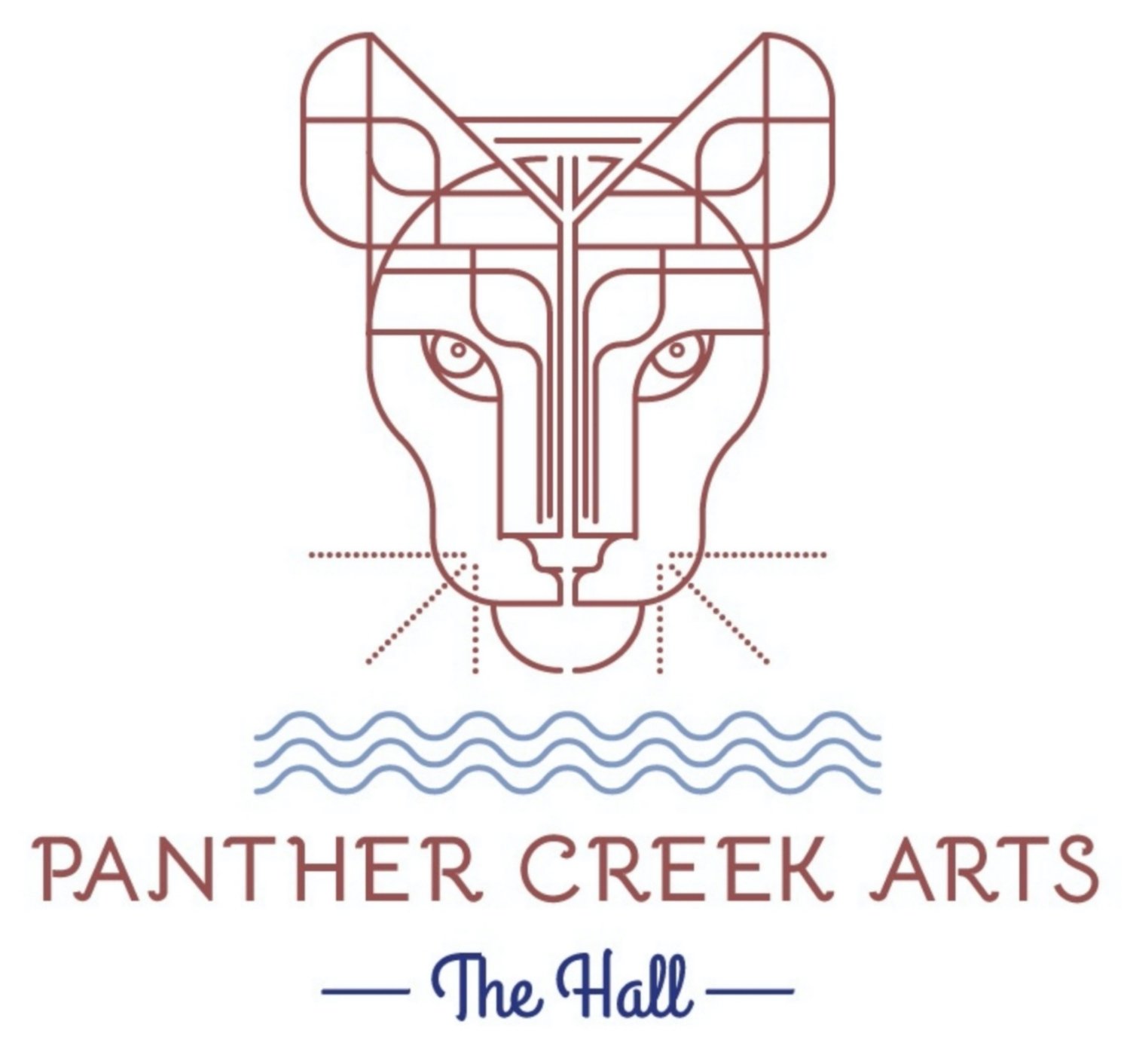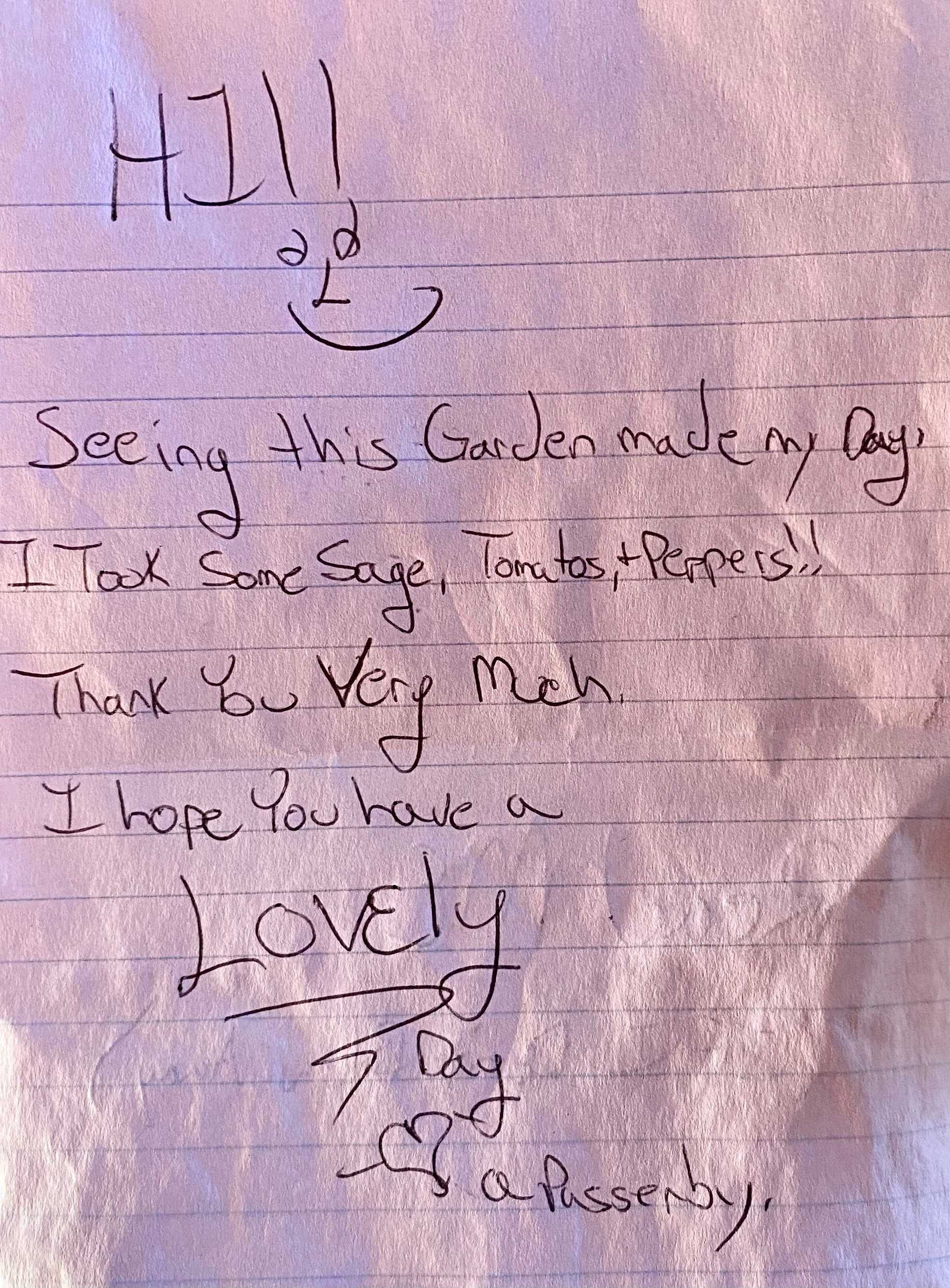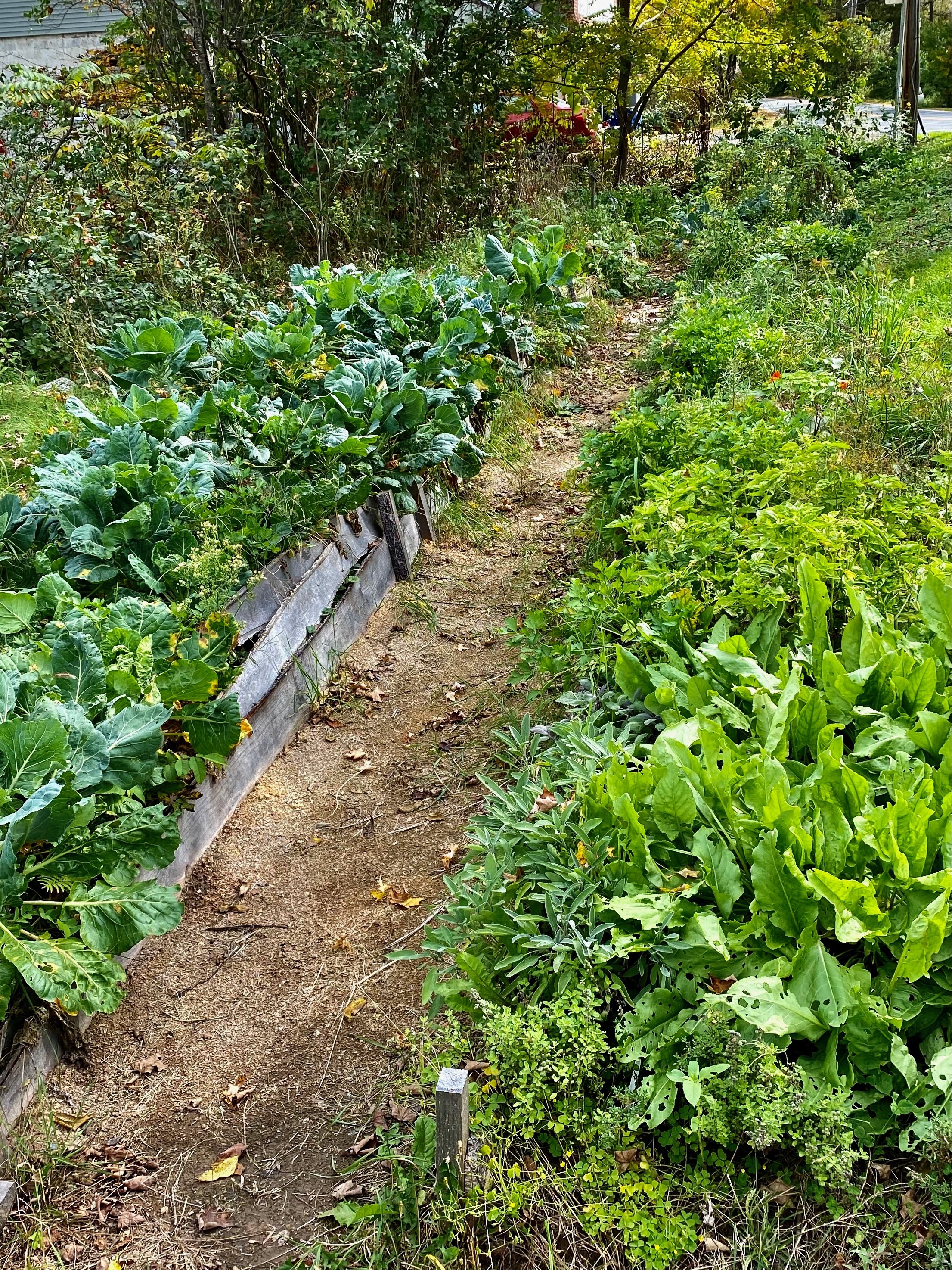West Fulton Edible Gardens
Small edible gardens throughout the town: if you eat you are in.
Do you live in town? Are you driving through town? Are you walking the Long Path and have a hunger pang? Stop by for some food. Or pull a weed and water the plants.
This is an all-volunteer project: we build the gardens from the ground up. We plan the gardens; we build the raised beds and the fencing; we plant the seeds; we tend the seeds; we transplant the seedlings; we water and occasionally weed the gardens; we have food for us and you.
It’s called “propaganda gardening”. What’s it for? It starts a conversation around local food; it brings people together in kindness and generosity; it’s the unifying language of food; it’s positive action that builds local resiliency; it creates progressive tourism; it produces value for us and generations to come. And then there is the informational and environmental impacts of our carbonizing globe. There’s plenty there to think about.
Small actions add up to solutions to take pride in and we would be happy for you come join the party. Volunteer. It’s what’s for dinner.
Here’s what we need:
Donations:
seeds (we have some to trade as well)
wood for garden fencing and raised beds
potting soil for starting seeds
organic fertilizer for seedlings
topsoil and compost for beds
volunteers to help build raised beds and fencing
garden signs
money is helpful of course!
Inspired by Pam Warhurst and co. the voluntary gardening initiative, Incredible Edible. We began constructing the West Fulton Edible Gardens back in 2019. These gardens are by our community, for our community. We encourage everyone to take part— come pick herbs and vegetables as you please. See a weed? Pluck it out! Plants look dry? Water them with the nearby hose.
It’s our goal to expand the gardens to include countless more and even have a trail between them all. Call it Vegetable Tourism.
In the meantime, spend 10 minutes watching this THIS VIDEO and THIS VIDEO. What should a community do with its unused land? Plant food, of course. Pam Warhurst tells the story of how she and a growing team of volunteers came together to turn plots of unused land into communal vegetable gardens, and to change the narrative of food in their community.




